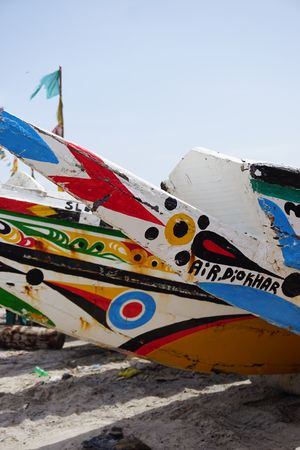Civic engagement and participatory governance in climate action - City of Dakar
THIS PAGE IS UNDER CONSTRUCTION
|
The range of vulnerabilities confronting the City of Dakar make climate change a tangible reality for its population. The City has strived through its Climate and Energy Action Plan to create a new paradigm of civic engagement and participatory governance.
Introduction
Like many developing countries, Senegal is particularly vulnerable to the impacts of climate change. The economic hub of Senegal, the City of Dakar, is also a pioneer in West Africa in the battle against climate change, evidenced now by its Climate and Energy Action Plan (PCET) process.
However, one of the major challenges facing Dakar, as in many cities – especially African cities – is sustaining civic participation and engagement is questions related to climate change. In particular:
- There is a recurring problem of competing priorities. Citizens often prefer to engage exclusively with the questions of development and economic growth, seeing climate change as a low priority issue;
- The public is disengaged from the process of participatory governance. This disengagement can be due to previous experiences with local government, which have led to discontent or a lack of trust, among other issues;
- Linguistic, technological and cultural barriers make it difficult to reach certain groups; in particular, groups regularly and systematically excluded from traditional engagement techniques around climate mitigation and adaptation practices.
The city of Dakar has taken proactive measures to make the climate action planning process inclusive. These measures are broken down into the following areas: institutional support for PCET activities, innovative means of communicating climate issues, and broad public consultations.
These consultations and civic awareness campaigns have been opportunities to exchange, debate, and surface solutions to the curent problems surrounding climate and energy in the Dakar area and its hinterland. The many forums have identified key climate risks, such as: coastal erosion, flooding, air pollution, and problems related to solid waste management and wastewater. For this range of vulnerabilities, local actors identified solutions and levers to raise awareness and encourage local ownership of climate issues, tailored to the dynamics of each community.
In the short term, these joint efforts have led the public to adopt eco-citizen actions such as voluntarily cleaning beaches, collecting garbage in the streets, or creating briquettes from recycled plastic waste to construct public park benches. Above all, the efforts have helped to roadmap and mobilize support for PCET’s priority activities.
The success of this civic engagement has been possible thanks to purpose-built institutions and services, such as the Citizens Dialogue Service and the “Dakar is Acting for the Climate” platform, known as DAKCLIM. This platform is a citizen’s parliament, with more than a hundred members representing the environmental, energy and waste sectors, as well as neighbourhood groups (youth, women, sports, etc).
Roadmap
Creating Civic engagement and participatory governance in climate action - City of Dakar
